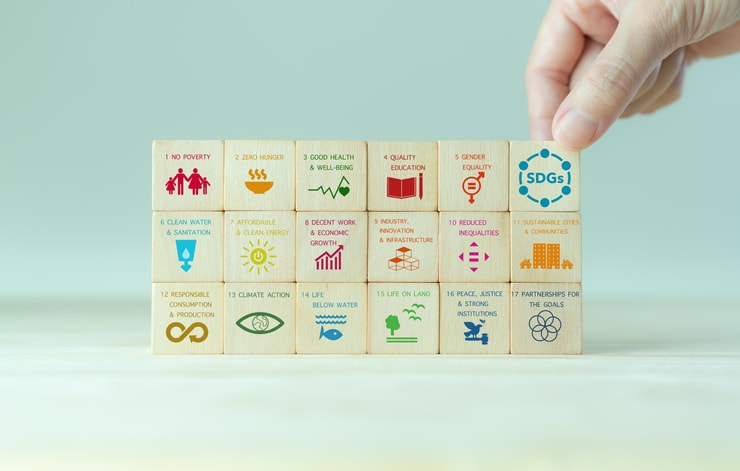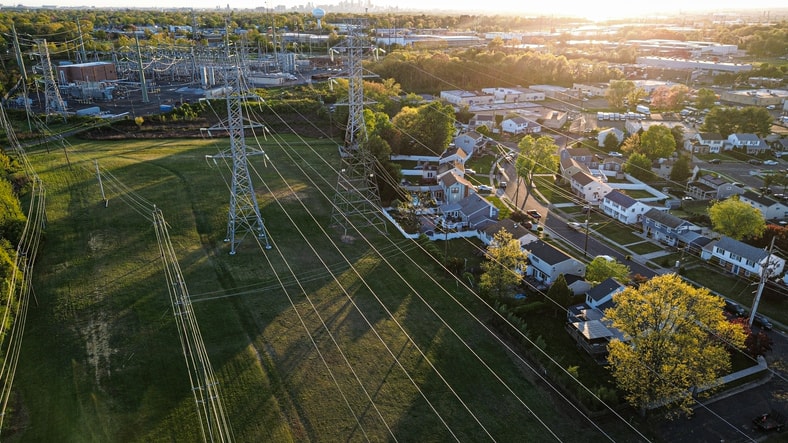Monday, September 25, 2023
Ending poverty, building sustainable cities and communities, curbing climate change... Having just passed the halfway point of the Sustainable Development Goals (SDGs) on the way to the 2030 Agenda, we ask ourselves: are we on time to meet its 169 goals?
By Jorge Ratia
On September 25, the Sustainable Development Goals (SDGs) are eight years old. In other words, since its adoption in 2015, we are already halfway to meeting the 17 global goals that aim to lead us towards a more equal, healthy, prosperous and sustainable future. Thus, this special anniversary is not only a good occasion to celebrate global engagement, but also an extraordinary opportunity to reflect on the progress made to date. During these years, we have witnessed significant progress in key areas such as the reduction of extreme poverty, gender equality and environmental protection. But are we on track to meet the 2030 targets?
Before answering this question, it's worth explaining what exactly the SDGs are. They're a set of 17 interconnected goals that seek to respond to humanity's main global challenges, including the eradication of poverty, the protection of the oceans or the promotion of health and well-being, among others. They were adopted in September 2015 by the 193 member states of the United Nations as part of the 2030 Agenda for Sustainable Development and are based on the idea that development should not be achieved at the expense of the environment or equity, but through a balance between economic growth, social inclusion and environmental sustainability. The premise is simple, but it’s a nuanced issue . The podcast The origin of the SDGs, a 17-color story can help with a more detailed understanding as it delves into the genesis of the SDGs and explores how they have influenced global transformation from their inception to the present day.
Will we reach the targets by 2030?
From 2000 to the present, the proportion of people living in poverty is declining in most UNECE countries, but not fast enough. In one third of the countries with data, more than 20% of the population still lives below the economic poverty line.
Something similar is occurring with education. While it's been slower than in similar time periods, 2015 to 2021 has seen a notable increase in the percentage of students finishing primary, secondary and higher education worldwide. Likewise, the unemployment rate has dropped significantly after the health and economic crisis of 2020, but youth unemployment is still much higher than that of the rest of the population groups.
In terms of gender equality, the last decades have seen more girls in school and more women in parliament, but there is still a long way to go: according to UN data, although 75% of the 2030 targets are on track, 23% are still far off track.
On the other hand, progress has been made in sustainable industrialization. The carbon intensity of economic production is decreasing and access to information and communication technologies is improving. Thus, if the current pace of progress is maintained and infrastructure development trends are reversed, sustainable and inclusive economic development will be achieved.
Likewise, the COVID-19 pandemic has awakened new responsible production strategies focused on instilling conscious consumption in balance with the availability of natural resources. A clear example of this are the projects that ensure the correct administration of water to guarantee this resource in a clean and drinkable form to all the people of the planet.
Despite the faster-than-desirable advance of climate change, another of the areas in which the world has changed the most is energy, with global access to electricity increasing from 73% in 1998 to 90% in 2020, and this figure promises to continue to climb. Renewable energy production and investment at the global level has skyrocketed in recent years. In addition, it’s worth noting the momentum of traditionally more reticent countries such as China and the United States. Clean fuels such as green hydrogen, biofuels or e-fuels, which have the potential to decarbonize more complex sectors such as heavy transport, have also gained momentum, especially after 2020.
Although progress is clear, realities such as political polarization and climate urgency call for ambition and coordinated action by all actors in the global community. This is a challenge in which companies, a particularly important player, are moving forward with ever greater determination: according to a report by the Spanish Global Compact Network, 63% of IBEX 35 companies and the majority of large unlisted companies have a sustainability committee within the Board of Directors, and 100% consider that working on sustainability and SDGs has an impact on the companies' competitive advantages.
In conclusion, great progress has been made in many different areas, but major challenges remain on the second half of the path to reaching 2030 with success. Fulfilling each and every one of the goals seems an almost monumental challenge. However, this isn't the main objective of the SDGs or the 2030 Agenda either; it’s to lead—as far as possible—all social actors on the planet towards the path of a kinder, more prosperous, fairer and balanced future.
¿Te ha parecido interesante?





